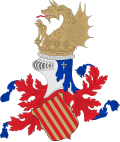This article needs additional citations for verification .(April 2024) |
Chulilla | |
|---|---|
 | |
| Coordinates: 39°39′20″N0°53′44″W / 39.65556°N 0.89556°W | |
| Country | |
| Autonomous community | |
| Province | Valencia |
| Comarca | Los Serranos |
| Judicial district | Llíria |
| Government | |
| • Alcalde | Enrique Silvestre (PP) |
| Area | |
• Total | 61.8 km2 (23.9 sq mi) |
| Elevation | 400 m (1,300 ft) |
| Population (2025-01-01) [1] | |
• Total | 710 |
| • Density | 11/km2 (30/sq mi) |
| Demonym(s) | Chulillano, chulillana |
| Time zone | UTC+1 (CET) |
| • Summer (DST) | UTC+2 (CEST) |
| Postal code | 46167 |
| Official language(s) | Spanish |
| Website | Official website |
Chulilla is a municipality in the comarca of Los Serranos in the Valencian Community, Spain. The name in Valencian is Xulilla, but the local language is Spanish, not Valencian.



